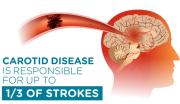
Your gut is sending you plenty of messages everyday, but you really need to learn what those messages are telling you.
Trust your gut for better health
The dictionary defines gut feeling as an instinct, a certainty that something is right, although you can give no good reason for it. Trusting the messages that your gut is sending can be a very smart choice because despite that many people may think of their stomach alone as their gut, it is much more. The truth is, according to the National Institute of Health, an individual’s entire digestive system is “the gut.” Starting with that meal that you eat, food takes a topsy-turvy trip starting in the mouth and finishing with you going to the bathroom and has a lot going on in between those two points. All along that very circuitous route where nutrients are absorbed and fats burned or stored there exists microorganisms, millions of them such as bacteria with millions of genes, fungi and viruses and makes up a person’s microbiome and like a fingerprint, it is individual to each person according to the National Institute of Health.
Listen to the message from your gut
The messages we receive from our gut, from a rumble because we are hungry to a queasy feeling after eating too much dairy to an urgency to find a restroom quickly are all very important messages that our gut tells us loud and clear. What we put in our body will surely have a result but before removing or adding something from your diet because it may be a trendy or popular, it is best to discuss the symptoms with your health care professional.
Trust the science, not the trend
While there are health related topics in the news and online that point to an individual’s gut health as the cause and effect for everything from disease to behavior, Shore Quality Partner Gastroenterologist Dr. Ken Schwab says, not so fast. “You have to look at the science behind a study before making drastic changes or removing something from your diet.” The gastroenterologist said people are removing gluten from their unnecessarily. “There is no benefit of adopting a gluten free lifestyle unless medically they have an intolerance to gluten. In fact it may do the person more harm than good because the gluten-free products tend to be higher in fat and most people do not need to be adding fat to their diets.” He did add that if a patient has a true sensitivity to gluten, such as those suffering with celiac disease they will need to discontinue eating gluten in such things as bread and allow the digestive system to heal.
The body’s personal food processor
Our gut is like our bodies personal food processor and it is also a large part of the body’s immune system. Understanding how the gut works can help a body keep things running more smoothly.
The mouth and teeth break food down into manageable pieces and mixed with saliva, begins the digestive process. The esophagus is the conduit between the mouth and the stomach. Swallowing initiates muscular contractions that push food down into the stomach.
The stomach secretes acid and peptic enzymes which further dilute and break up the food, softening connective tissue and hard skins and husks, digesting proteins, killing off the majority bacteria in the food and delivering the resulting slurry into the small intestine at the rate of digestion. According to Inflammatory Bowel Syndrome Network, It usually takes about 1-5 hours for most of a moderate sized mixed meal to be emptied from the stomach.
The small intestine is a narrow tube about 20 feet long. Here is where protein fat and carbohydrates are broken down into amino acids, sugars and fatty acids, which are then absorbed into the blood stream. It takes between 2-4 hours for a meal to be processed in the small intestine. The colon or large intestine salvages unabsorbed material from the small intestine. It extracts salt and water from the solidifying contents, while the trillions of colonic bacteria ferment unabsorbed sugars, starches and proteins.
The pancreas is a digestive gland that secretes an alkaline juice, containing powerful enzymes that break down protein, fat and carbohydrates. It is also the source of insulin. The liver receives blood from the gut, filters it, removes toxins, metabolizes drugs, stores nutrients and synthesizes proteins for various purposes including blood clotting. It also synthesizes bile. The gall bladder stores and concentrates bile, and after a meal squeezes it into the small intestine, where it helps to digest fat.
The National Institute of Diabetes, Digestive and Kidney Diseases reports that digestion is important for breaking down food into nutrients, which your gut and your body uses for energy, growth, and cell repair. The report also notes that some digestive diseases and conditions are acute, lasting only a short time, while others are chronic, or long-lasting.
Many things that will affect the gut
The gut is so sophisticated and interconnected, so many factors can affect it and bump it out of kilter. Stress, what we eat, illness, exercise, medications, even getting older can affect the gut and lead to abdominal pain, bloating, nausea and vomiting, indigestion constipation, diarrhea and flatulence.
Help your gut
One way to take care of yourself is to take care of your gut. Dr. Schwab said the patients should follow a cardio protective as well as a cancer protective diet that will limit the risk of cancer and be heart healthy and may also provide benefits in some patients with irritable bowel syndrome. He suggests a diet low in fat that limits red meat to twice a week with more chicken and vegetables. The gastroenterologist does not suggest fasting or cleansing for patients, saying that it can create an electrolyte imbalance. He also said the low carb-high fat diet or going to a totally organic diet is not the answer either. “People need to be reasonable; they need to lose the weight, exercise, cut out the high fats, but that will only help with some of the digestive disorders like irritable bowel syndrome.”










